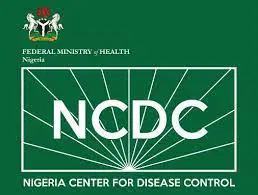The Nigeria Centre for Disease Control and Prevention (NCDC) has raised concerns over the growing number of Lassa fever cases, urging Nigerians to adopt preventive measures during the peak transmission season.
Speaking to reporters on Monday in Abuja, Dr. Jide Idris, NCDC’s Director-General, described Lassa fever as a significant public health threat in the country. He explained that the disease, caused by the Lassa virus, is endemic in Nigeria and is primarily transmitted through contact with the urine, feces, saliva, or blood of infected rodents, especially the multimammate rat. The virus can also spread through direct contact with the bodily fluids of infected individuals.
“Early symptoms of Lassa fever resemble those of malaria, including fever, headache, weakness, cough, nausea, vomiting, and diarrhea,” Idris said. “In severe cases, bleeding from body openings may occur, but early detection and treatment are crucial for improving survival rates.”
The NCDC’s advisory outlined preventive measures to curb the spread of Lassa fever, targeting high-risk groups such as individuals living in rodent-prone areas, those consuming contaminated food, healthcare workers without proper protective equipment, and laboratory staff handling blood samples without adequate precautions.
Key prevention tips include:
- Keeping homes and surroundings clean to eliminate rodent breeding sites.
- Sealing holes and cracks to block rodent entry.
- Storing food in airtight containers.
- Avoiding open-air drying of food items.
- Seeking immediate medical care for early symptoms instead of self-medicating.
- Practicing regular hand hygiene and maintaining proper sanitation.
Idris also discouraged bush burning and deforestation, which displace rodents into human settlements, increasing the risk of transmission. He urged the public to report suspected cases promptly to the State Ministry of Health or call the NCDC toll-free line at 6232 for assistance.
“The NCDC remains steadfast in its commitment to reducing the impact of Lassa fever through robust public awareness campaigns, strengthened surveillance, and stakeholder collaboration,” Idris added.
This advisory reflects the NCDC’s proactive approach to mitigating the health risks posed by Lassa fever and safeguarding public health across Nigeria.
Hobnob News.

